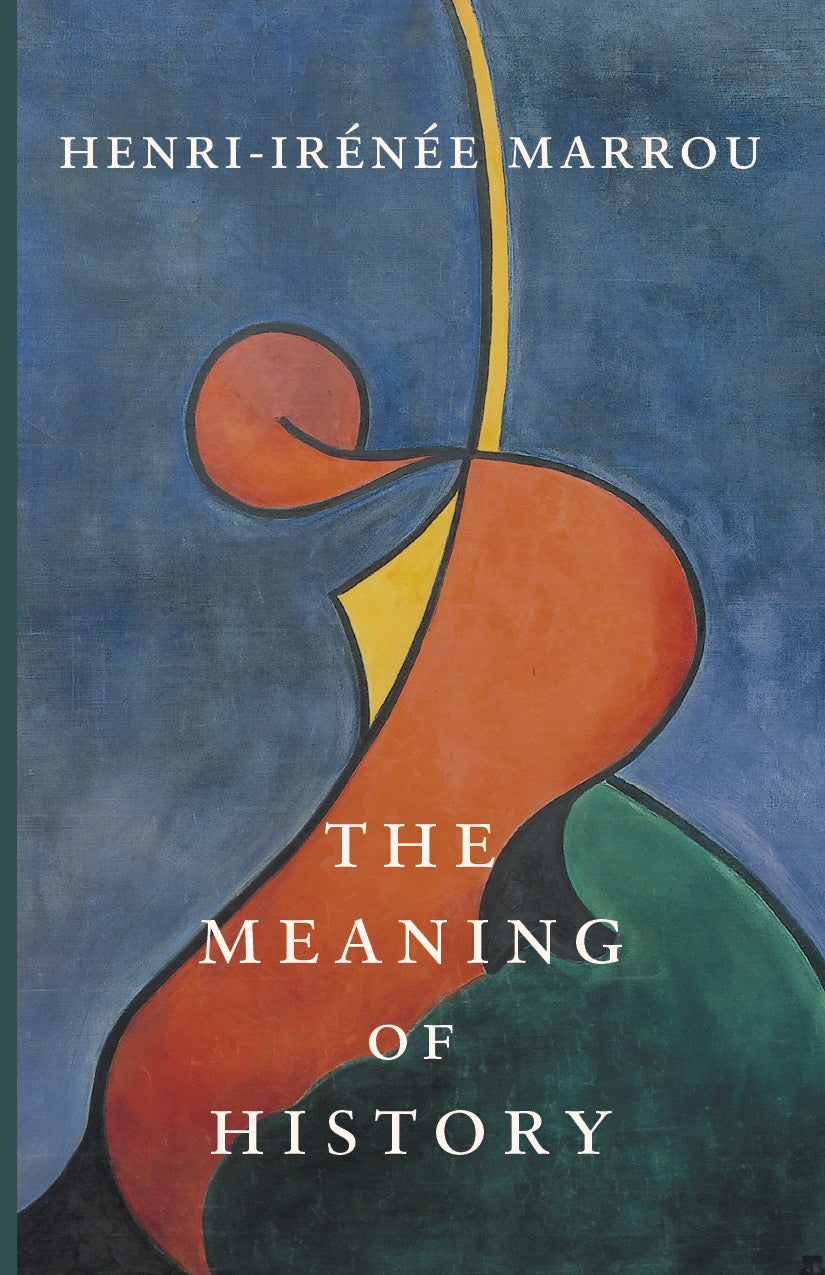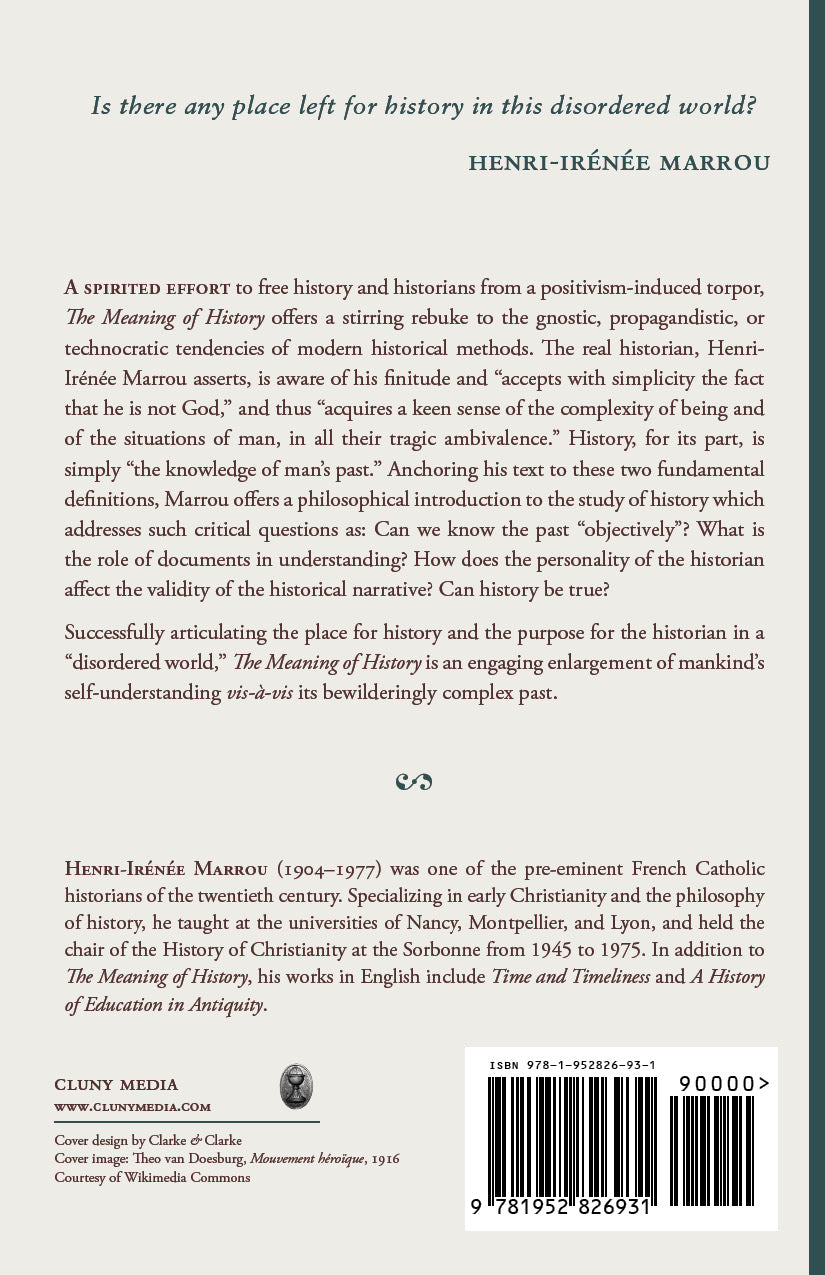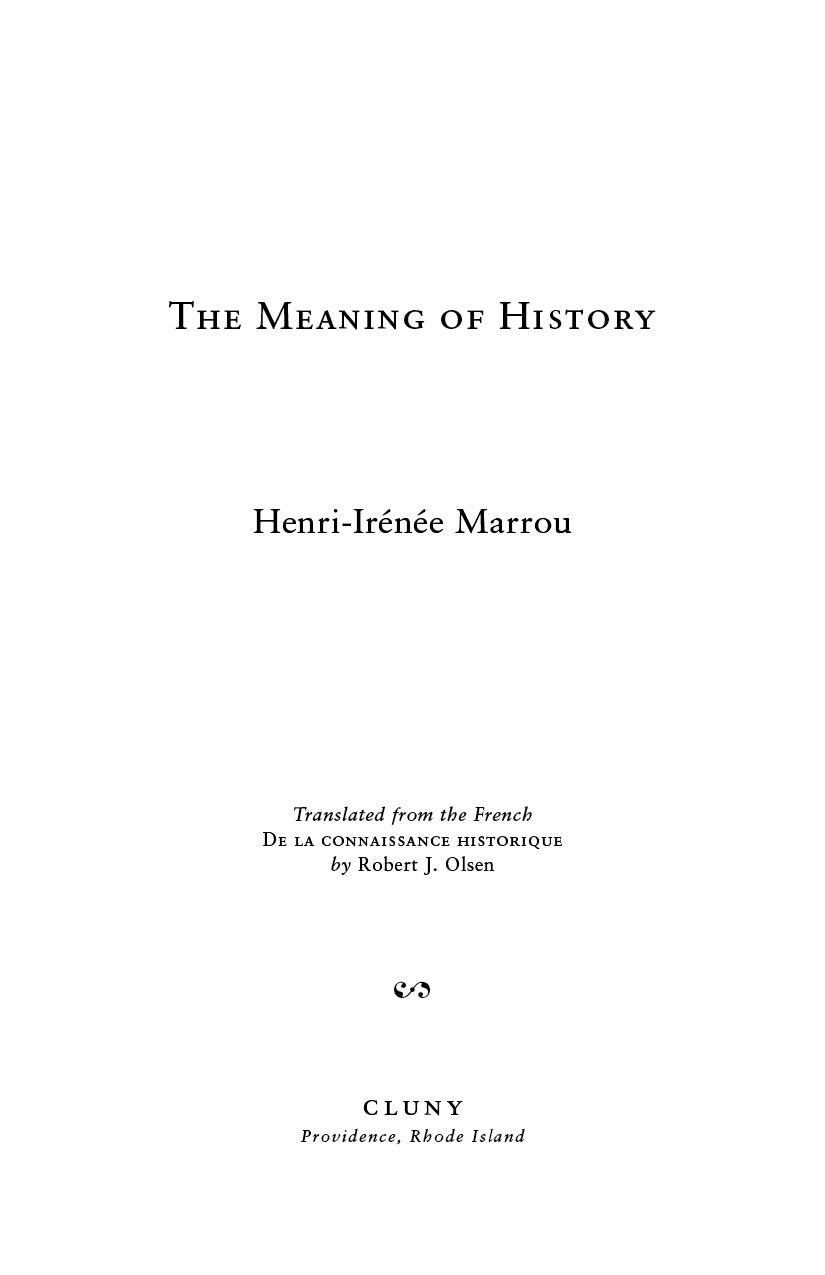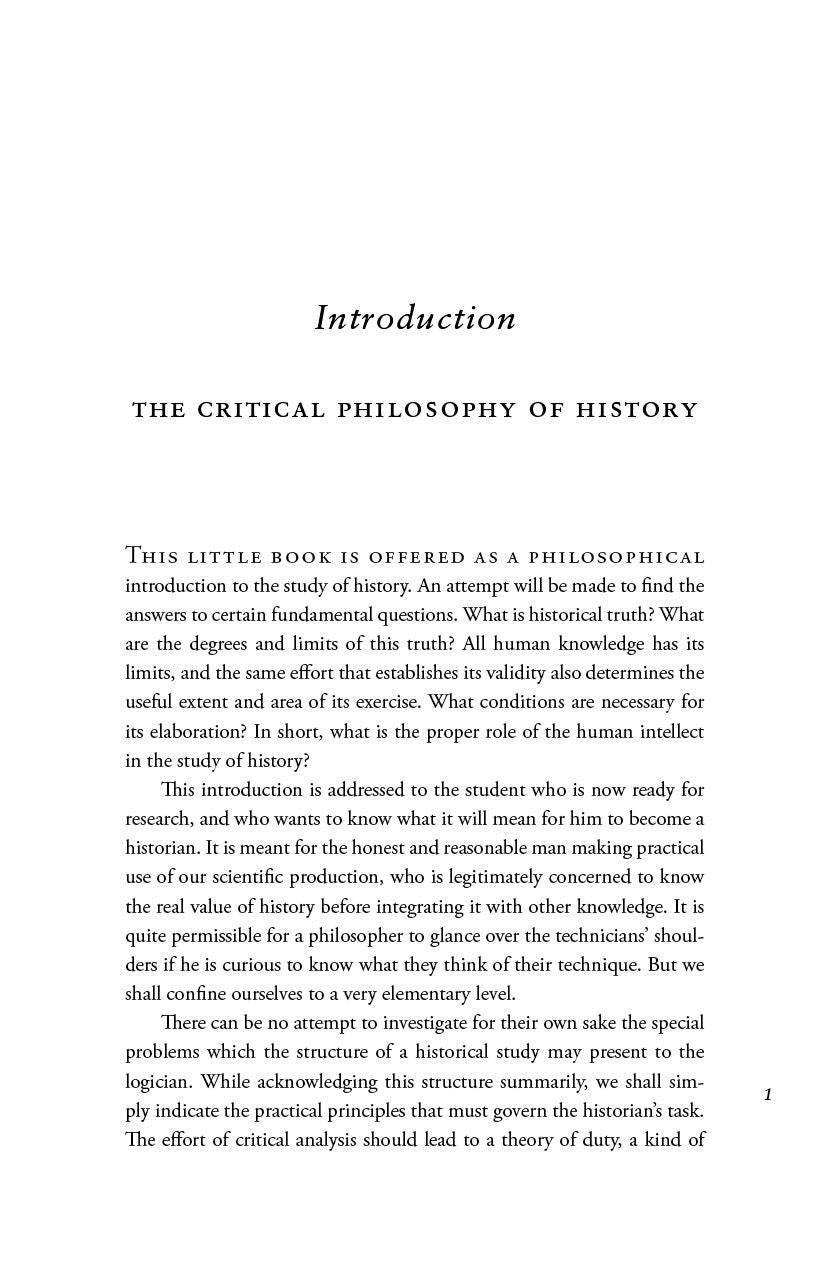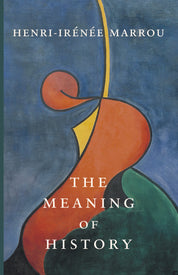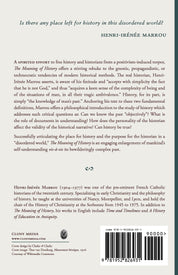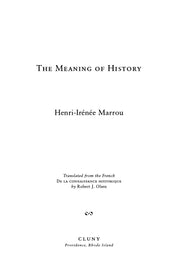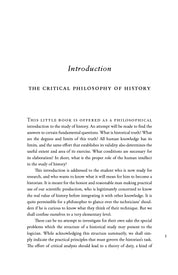The Meaning of History
By Henri-Irénée Marrou
A spirited effort to free history and historians from a positivism-induced torpor, The Meaning of History offers a stirring rebuke to the gnostic, propagandistic, or technocratic tendencies of modern historical methods. The real historian, Henri-Irénée Marrou asserts, is aware of his finitude and “accepts with simplicity the fact that he is not God,” and thus “acquires a keen sense of the complexity of being and of the situations of man, in all their tragic ambivalence.” History, for its part, is simply “the knowledge of man’s past.” Anchoring his text to these two fundamental definitions, Marrou offers a philosophical introduction to the study of history which addresses such critical questions as: Can we know the past “objectively”? What is the role of documents in understanding? How does the personality of the historian affect the validity of the historical narrative? Can history be true?
Is there any place left for history in this disordered world? (Henri-Irénée Marrou)
Successfully articulating the place for history and the purpose for the historian in a “disordered world,” The Meaning of History is an engaging enlargement of mankind’s self-understanding vis-à-vis its bewilderingly complex past.
* * *
Henri-Irénée Marrou (1904–1977) was one of the pre-eminent French Catholic historians of the twentieth century. Specializing in early Christianity and the philosophy of history, he taught at the universities of Nancy, Montpellier, and Lyon, and held the chair of the History of Christianity at the Sorbonne from 1945 to 1975. In addition to The Meaning of History, his works in English include Time and Timeliness and A History of Education in Antiquity.
Paperback: 288pp.
ISBN: 978-1952826931

